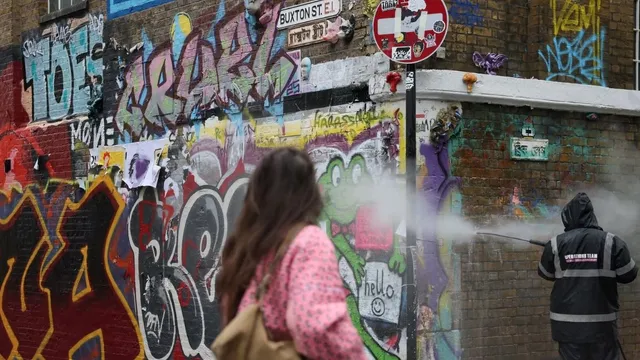- By Shivangi Sharma
- Thu, 20 Nov 2025 02:56 PM (IST)
- Source:JND
A new directive from Britain’s National Police Chiefs’ Council (NPCC) has triggered an intense political backlash after officers were advised to refer to prostitutes as “sexual entrepreneurs”. Critics, including members of the All-Party Parliamentary Group (APPG) on Commercial Sexual Exploitation, argue that the terminology risks normalising the exploitation of vulnerable women and undermining existing laws against sexual coercion.
According to The Telegraph, Labour MP Tonia Antoniazzi, who chairs the APPG, wrote a detailed letter to policing and crime minister Sarah Jones, calling the language “harmful and inappropriate”. Antoniazzi warned that rebranding prostitution through softer terms risks creating confusion for frontline officers and weakening the enforcement of legislation meant to protect victims of exploitation.
Concerns Over “Normalising” Sexual Exploitation
The APPG expressed “deep concern” over the NPCC’s approach, stating that describing prostitution in entrepreneurial terms effectively reframes commercial sexual exploitation as legitimate work. MPs fear this shift in rhetoric could discourage police action against criminal networks that coerce women into the sex trade.
The guidance instructs officers to limit the use of words such as “prostitute” and “prostitution” strictly to their legal definitions and instead adopt alternative terminology. A section of the Sex Work National Police Guidance claims that sex work may be a “necessary survival strategy” for some individuals and an “active career choice” for others, language the APPG says aligns with contested activist-led narratives rather than current UK law.
Antoniazzi said it was “wholly inappropriate” for the NPCC to embed the term “sex work” even within job titles of officers responsible for overseeing the issue, calling the terminology ideological and politically loaded.
Disabled Officers And Controversial Clause
One of the most contentious elements of the guidance is a statement suggesting that banning disabled officers from paying for sex could cause “significant distress”, as some may have “no other option” for forming physical relationships. The APPG labelled the claim “deeply offensive”, arguing that it reinforces harmful stereotypes and dangerously legitimises the purchase of sexual services.
The MPs have requested an urgent meeting with Minister Sarah Jones, urging the government to realign policing practices with Scotland’s model. Police Scotland avoids the term “sex work” entirely and frames paid sex as a form of violence against women.
ALSO READ: ‘From Red Fort to Kashmir’: Pakistan Leader Publicly Admits Role In Terror Attacks Across India

